I recently wrote several articles for Daughters of Promise magazine, to add to my earlier Women in the Trenches series. This article features Lisl Lattin, a mother and wife in Chiang Mi, Thailand.
“My journey to Thailand started mostly with Dru,” Lisl Lattin told me when I asked what led her to Thailand. Even when they were dating, she knew that he was called to be a missionary. Much of their dating was done long distance, while Dru attended the Institute of Global Opportunities, or IGo, an Anabaptist mission and training school in Chiang Mai, Thailand. Five months after their marriage, Dru and Lisl moved to Chiang Mai.
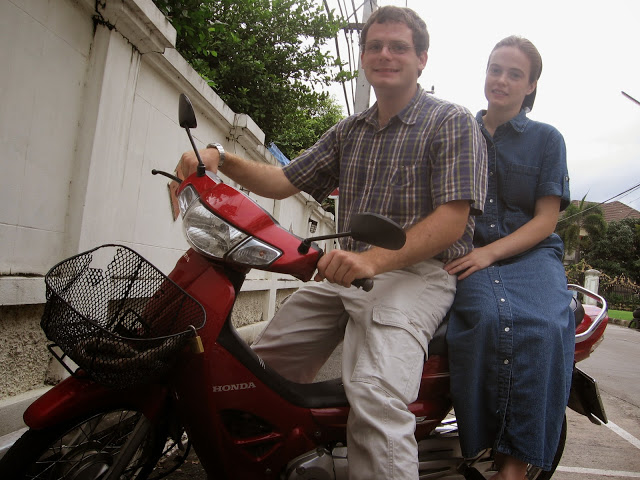
Lisl’s first child was born in Thailand and today, she is a mother of four: Jube, 6; Havilah, 5; Rennie, 3; and a little boy on the way. She home schools Jube, who is just now reading, and Havilah, who is slowly working her way through preschool. “We’re not living terribly primitively,” Lisl said. “I’m raising my children with a lot of the same conveniences I would have in the States, just in a different culture.”
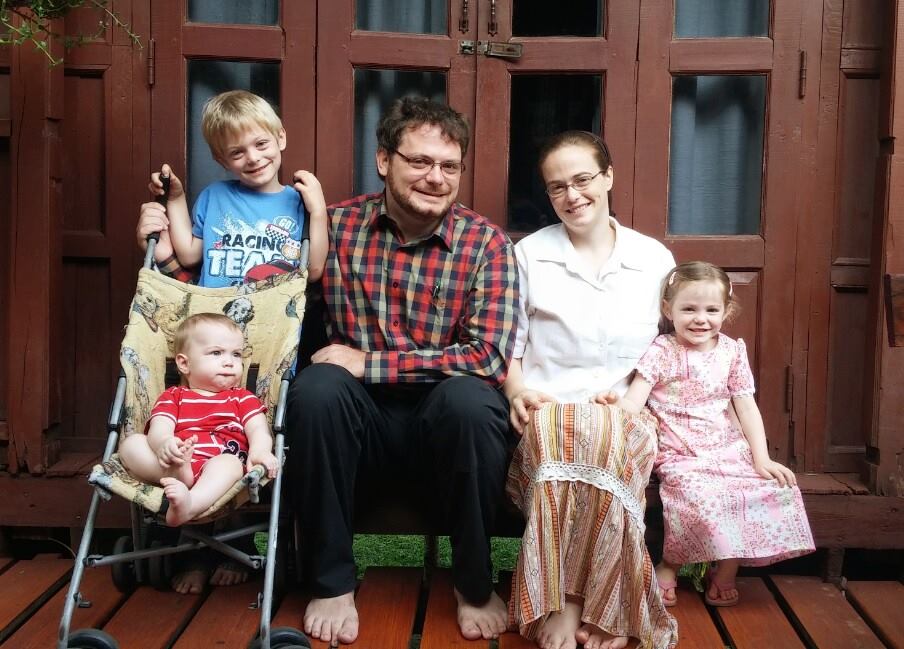
And that culture is very different. “There are parts of this culture we could not in a hundred years understand.”
Thai Culture
So what are the differences?
Feet, for one thing. After eight years in Thailand, Lisl is just a bit shocked when she visits the U.S. and sees her dad relaxing in the living room with his feet propped up. “I think, ‘Get your dirty feet off the coffee table!’ But I don’t say that.
“In Thailand, people try to keep their feet under them. You don’t put your feet on the coffee tables in this country.”
In Thailand, where everything has a hierarchy, feet are considered very low. One of the worst insults you could give is to stick your foot out at someone. On the contrary, heads are considered very high, and to touch someone’s head is a sign of disrespect, especially if that person is an elder.
Lisl explained that body language is very important in Thai culture, from keeping your body lower than your elders and authorities to holding your hands in the proper position when greeting someone. During a greeting, your hands should be held together as if you are praying. If you are greeting an older person, your hands should be held up in front of your face; but if the person is an equal, your hands should be at chest level.
“Thai culture is very, very complex,” Lisl said. “It’s no wonder we miss stuff. But they give a lot of grace to foreigners for not knowing.”
There is a huge emphasis in Thailand on respecting elders, so much so, Lisl said, that “it’s to the point of people needing blessing for things we think should be a personal decision.”
For example, when the children’s adopted Thai grandmother, Mae Wan–whom they call Yaa Yai–was baptized, she felt she needed to pass her decision with her mom and older siblings first. This, in spite of the fact that she was an adult fifty years old.
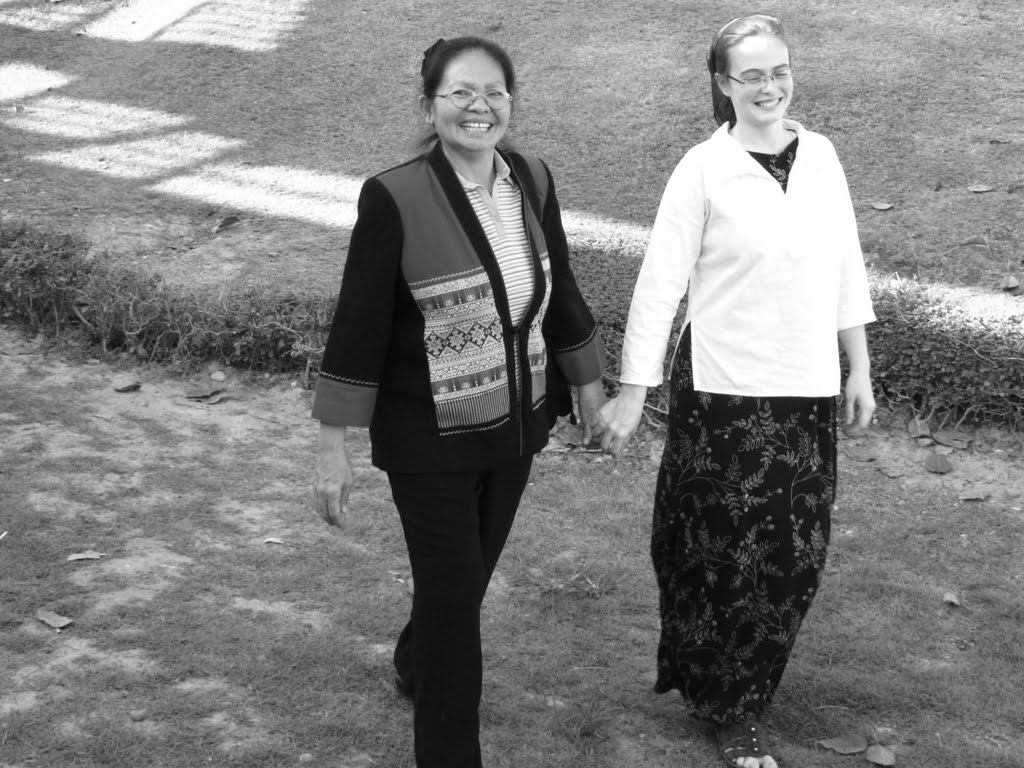
“The idea of a personal decision is almost foreign,” Lisl said. “For young teenagers who want to follow the Lord, it can be complicated because they do not have their parents’ blessing.”
And that blessing would be difficult to gain. The Thai feel if you are not a Buddhist, you are not a Thai.
While in its purest form, Buddhism is more a philosophy or way of life than a religion, the Thai have mixed it with the worship of idols and ancestors and with animism, the belief that every part of nature–from the rocks to the trees to the universe itself–contains a spirit.
“There’s a lot of fear of spirits and ghosts,” Lisl said. “There are some that would not want to kill an ant or a spider.” A Thai Buddhist worships his ancestors and the Buddhist gods, and he might even throw in Jesus; but the concept of having no god but One is foreign.
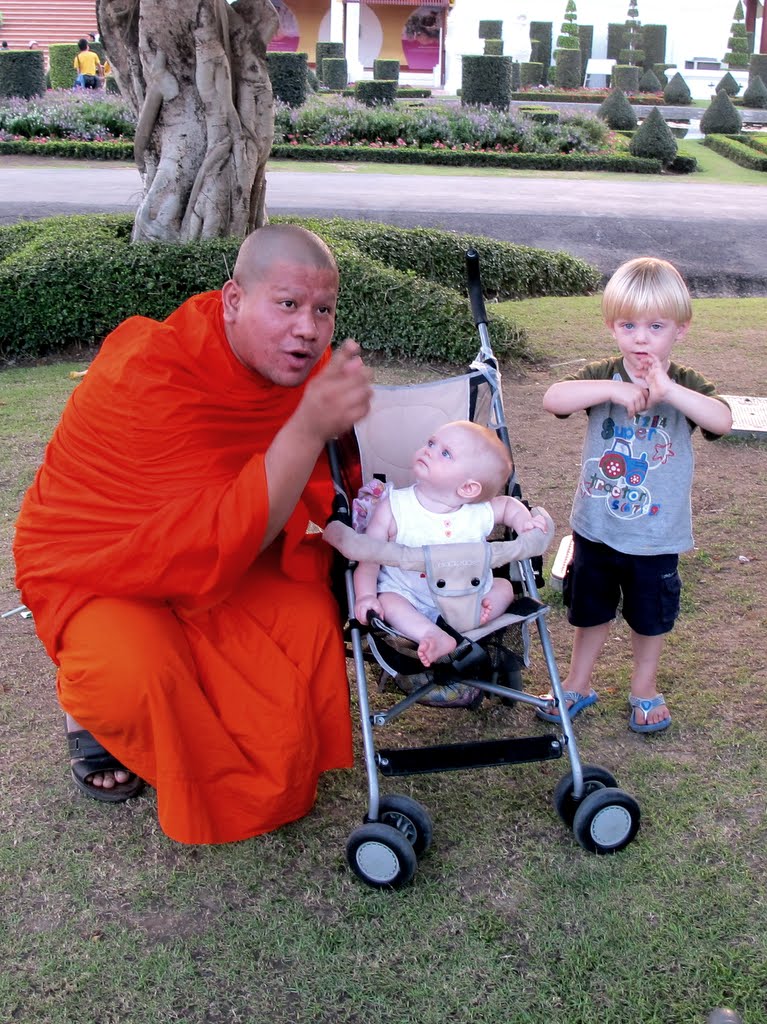
Another difference between Thai and Western cultures is that Thais tend to make their decisions based on feelings rather than logic. A Thai person might say in a discussion, “I see what you’re saying, and that makes sense, but I feel this way, so I’ll do it this way.” While logic and reasoning play a role, other issues – like community, respect, and feelings – are often given more weight.
“We could use more of their ability to feel and their ability to hear from their elders,” Lisl said, “but sometimes it does go too far. All these cultures, ours and theirs, are fallen cultures. As Christians, we find a new, redeemed culture in Jesus Christ.”
The Journey So Far
Dru and Lisl’s journey in Thailand has been full of rerouting and detours. “I feel like we’ve been redirected a lot,” Lisl said. “We think we know where we’re headed, and when that doesn’t work out it can be very disconcerting.”
Initially, they planned to work with a Thai pastor in his church, and were very involved with him for three years. “But that did not work out when we realized we had some serious theological differences.” It grew difficult for Dru, who was serving in a teaching and preaching role, to teach the Word of God unreservedly, knowing that in some areas he disagreed with the pastor. “We didn’t want to start something unhealthy.”
So they made the decision to pull out and began to look at other options. Where did God want them? During their three years in Thailand, Dru had started some highly successful English classes, in which Christian teachers taught English to children and took the opportunity to point them to Christ. “English classes are huge,” Lisl said. “Everyone wants to learn English.” It is a very effective way for Christians to reach out.
But through that experience, Dru realized that being able to obtain a work visa in Thailand was increasingly difficult for someone without college accreditation. The government wanted qualified individuals to teach, and Dru and Lisl decided that for their future in Thailand, Dru needed to earn a degree.
They soon discovered that the only university in the city that met Dru’s needs was right around the corner from their house. When they had moved to their big house several years prior, they had been thinking of its location and dirt-cheap rent, and the university was the last thing on their mind. But now, when they needed it, it was there. “Having that university there was a huge confirmation that we were in the Lord’s will,” Lisl said.
After two and a half years of study, Dru earned his degree, and he and Lisl moved closer to IGo with the desire to disciple young Christians. After a year, when few opportunities for discipling opened up in that location, Dru and Lisl moved to a different part of the city, this time to live near and disciple a new Christian couple and work with them in planting a church.
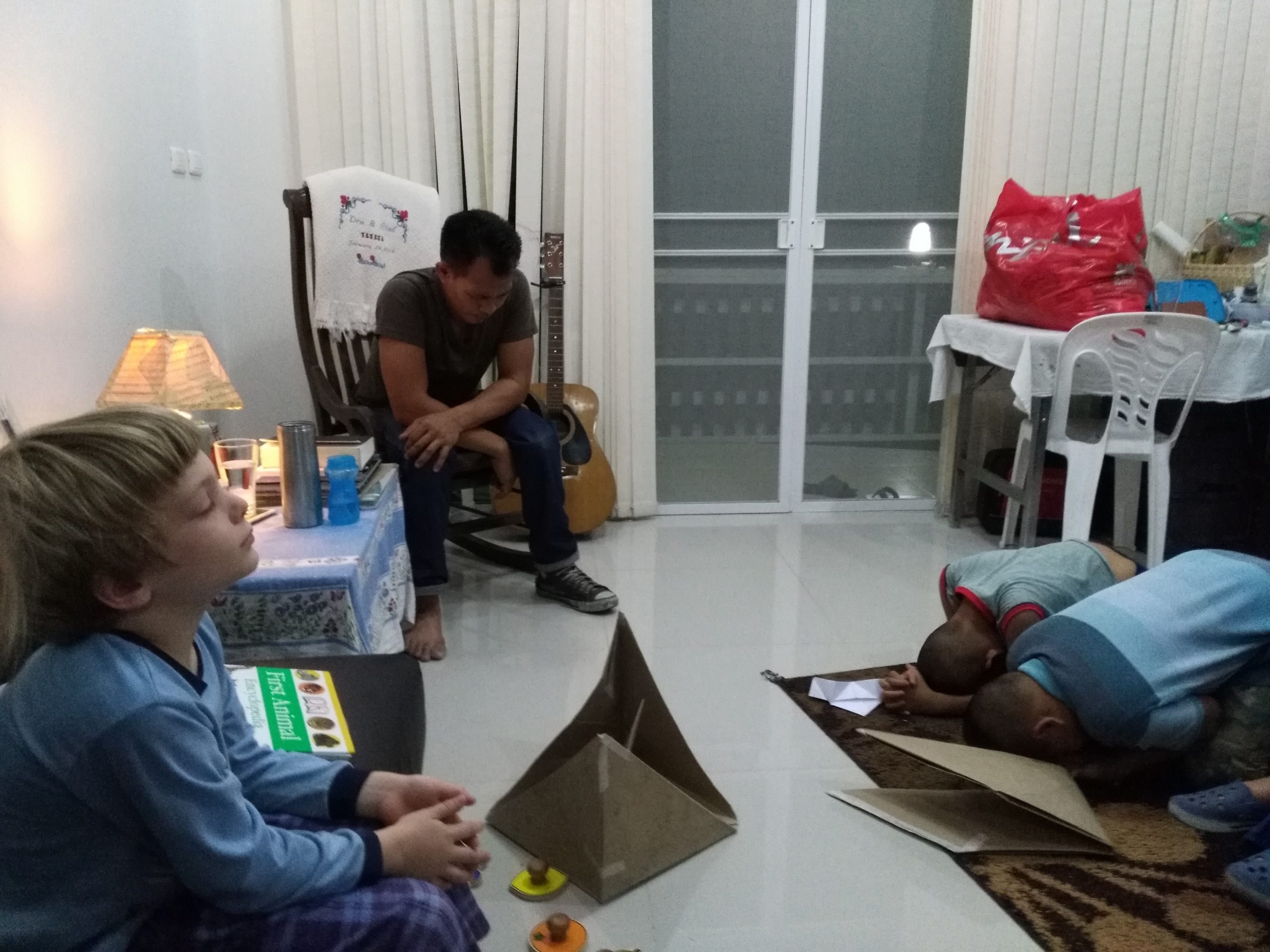
Dru and Lisl were excited to baptize Bob and Yai last fall and to see them grow in their Christian walk, but have realized that they are not the right team for church planting. “Bob and Yai are still very young in faith,” Lisl said. “He’s trying to overcome smoking and drug addictions from his past, and he battles with not drinking. They’re definitely committed, but not yet mature.” Also, they realized Bob was kept busy just with work and raising his family. For him to find time for church work–“it’s not there.”
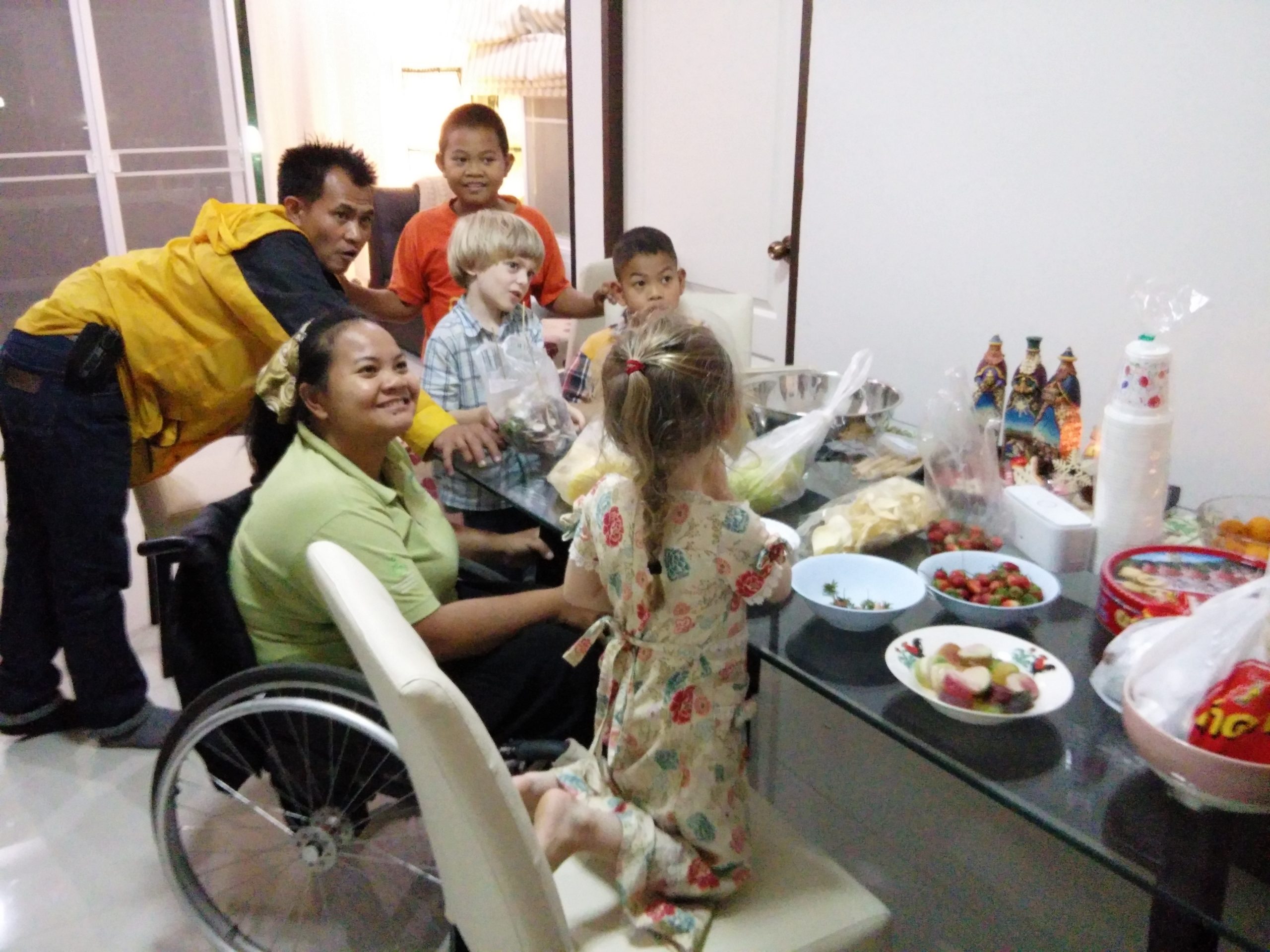
Although Dru and Lisl looked for someone else willing to join their church planting effort in Chiang Mi, no doors opened for that to happen. And so, Lisl said, “The road could turn a corner once again.” They are committed to Thailand for the long term, but believe God may be calling them to a different focus of ministry. They are open to His leading, though they are not sure where it may take them.
What She’s Learned Along the Way
Lisl is thankful the foundation of Bible teaching and godly habits she learned from her parents. “Often I don’t know how to relate to Yai because I haven’t walked through the same things,” she said. “How do I be practical for her?
“For her, every step forward is big; it’s hard. For me, some of those things come naturally, and the idea of doing it some other way is foreign. It was done for me by parents and grandparents who said, ‘We’re going to change this habit for ourselves and for our children.’ Yai fights for every step of the way.”
But Lisl has had to fight battles of a different kind, as she went through the adjustments of childbirth and motherhood in a culture and environment foreign to her. Her body is not used to Thai heat, and during pregnancies, it only gets worse.
“My toughest time was when I was pregnant with Havilah,” Lisl said. “I realized I kinda knew what depression was.” During that time, while Dru and Lisl worked with the Thai pastor, she had little contact with Americans. When she did occasionally get together with some of the ladies from IGo, she felt lost because she had no idea what was happening in their lives. “It was confusing to try to figure out who I was. I felt like, ‘I’m not Thai, and I don’t fit in with the Americans, either.’ ”
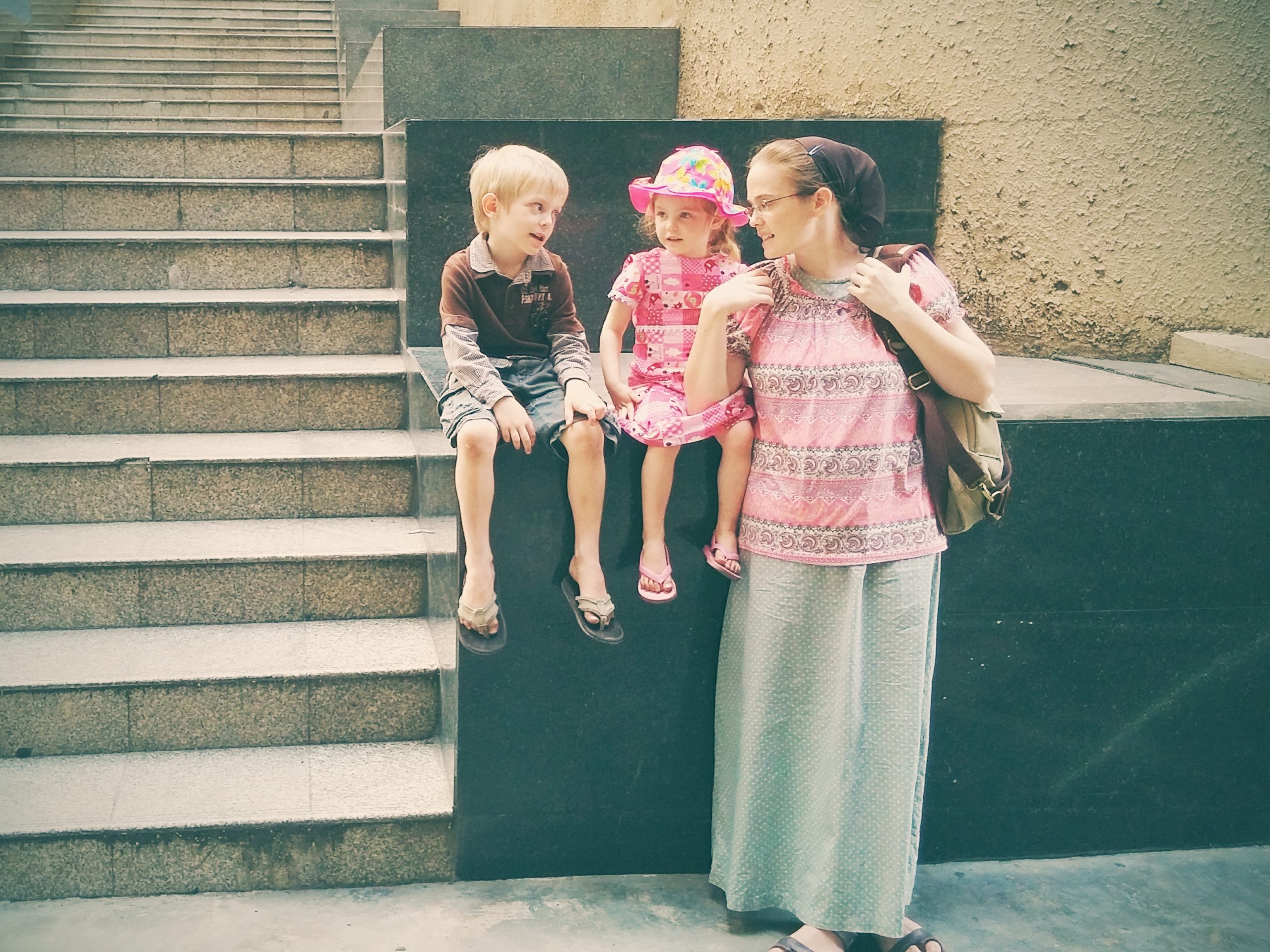
The Thai pastor was a very intense man who held services or church events five times a week. Lisl, although worn out from her pregnancy as well as caring for little Jube, found it hard to say that she needed to be a mom and stay home sometimes. Dru also felt the pressure when she wasn’t there and people would ask, “Where’s your wife?”
“It’s not easy learning to make boundaries,” Lisl said. “I remember right where I was standing when I thought, ‘I do not have to impress this pastor or anyone else.’ It was hard for me to realize that yes, my husband is a missionary here in Thailand and I want to work beside him, but my reason for living right now is to be a mom and wife. As soon as I start stressing about what I can’t do, I lose my joy and my energy.
“I need to hear my man and walk beside him. Eventually I’ll be able to do what he’s doing more closely, but right now I have to be okay with saying no. My reputation here doesn’t matter. I know what I’m supposed to be doing.”
***

You can read Lisl’s musings and meet the newest member of the Lattin family on her blog, Green Guava’s Wife. The Green Guava? That’s Dru. You can check out his blog as well.
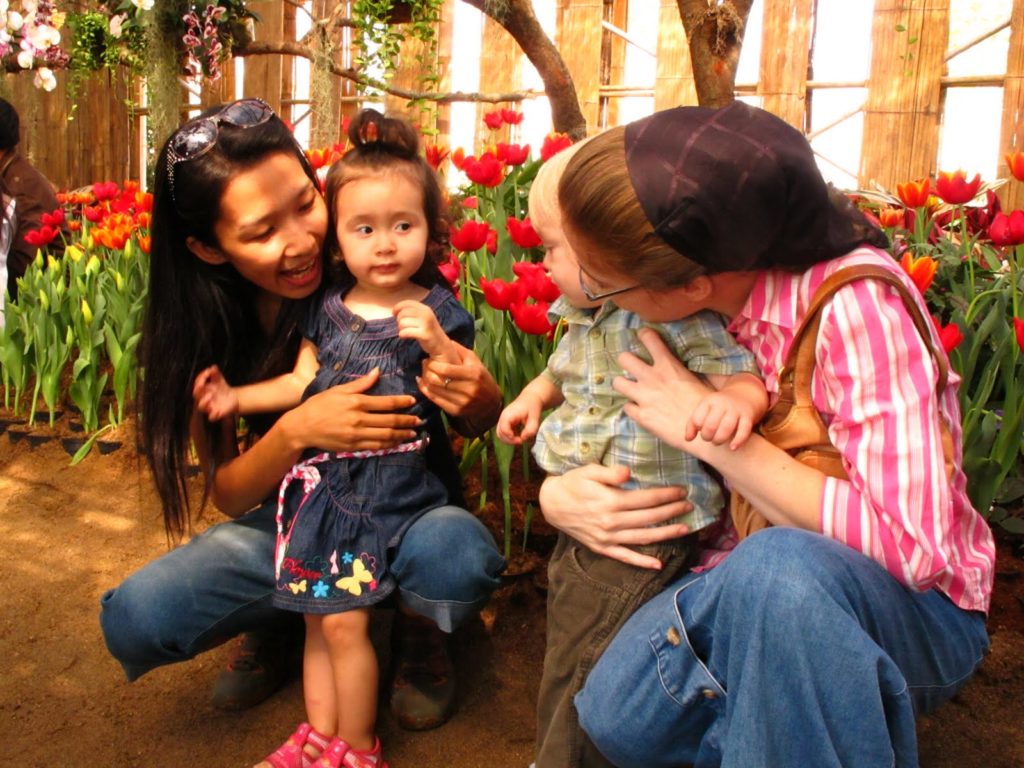
I’ve missed Women in the Trenches! So glad to see it back!
And my sister just got back from Thailand just last week! Fun to hear about a mom’s life in that country!
Gina
How fun! I would like to hear about your sister’s experiences there. Maybe you will blog about it?
Thank you for giving me a window into another world. What a great mission endeavor. The photos are stellar!
I’m glad you enjoyed it. Doing the interview, I very much enjoyed my glimpse into Thailand as well. Thank you to Dru and Lisl for those great photos.
I just found this blog post today. I went to Bible School with Dru here in the states, although I never have had the privilege of meeting Lisl. Thanks for sharing, it was great to hear more about their lives over there!
So glad you enjoyed it. Always fun to find those online connections.